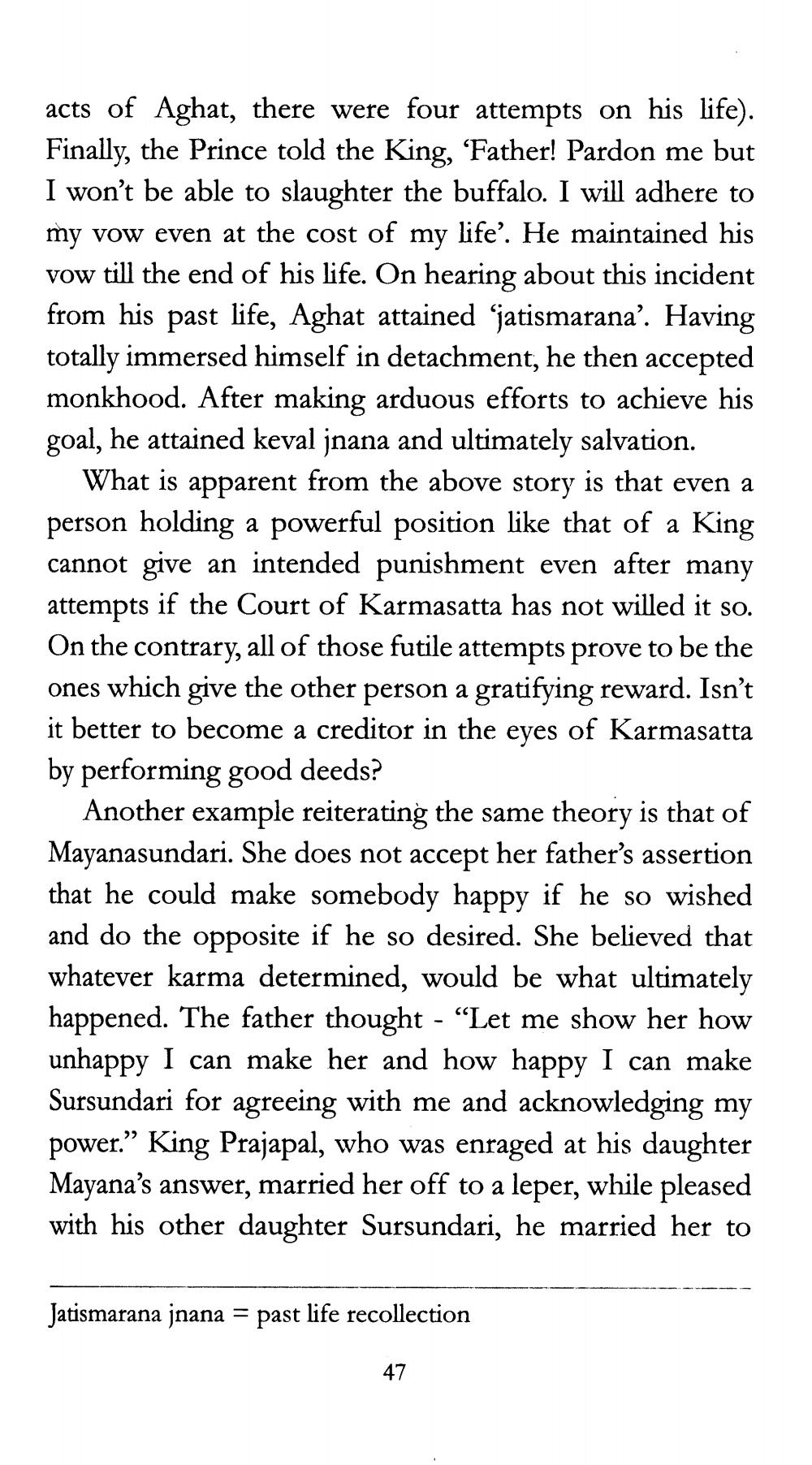________________
acts of Aghat, there were four attempts on his life). Finally, the Prince told the King, 'Father! Pardon me but I won't be able to slaughter the buffalo. I will adhere to my vow even at the cost of my life'. He maintained his vow till the end of his life. On hearing about this incident from his past life, Aghat attained jatismarana'. Having totally immersed himself in detachment, he then accepted monkhood. After making arduous efforts to achieve his goal, he attained keval jnana and ultimately salvation.
What is apparent from the above story is that even a person holding a powerful position like that of a King cannot give an intended punishment even after many attempts if the Court of Karmasatta has not willed it so. On the contrary, all of those futile attempts prove to be the ones which give the other person a gratifying reward. Isn't it better to become a creditor in the eyes of Karmasatta by performing good deeds?
-
Another example reiterating the same theory is that of Mayanasundari. She does not accept her father's assertion that he could make somebody happy if he so wished and do the opposite if he so desired. She believed that whatever karma determined, would be what ultimately happened. The father thought - "Let me show her how unhappy I can make her and how happy I can make Sursundari for agreeing with me and acknowledging my power." King Prajapal, who was enraged at his daughter Mayana's answer, married her off to a leper, while pleased with his other daughter Sursundari, he married her to
Jatismarana jnana = past life recollection
47




